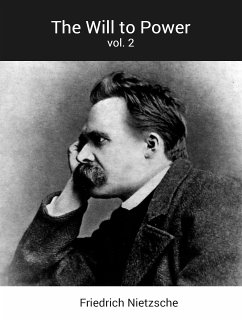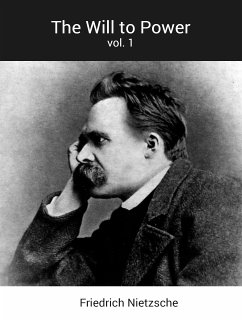
Rameau's Nephew (in a new translation by Ian C. Johnston) (eBook, ePUB)
Sofort per Download lieferbar
0,49 €
inkl. MwSt.
Weitere Ausgaben:

PAYBACK Punkte
0 °P sammeln!
In "Rameau's Nephew," Denis Diderot crafts a provocative philosophical dialogue between two characters, exploring themes of morality, art, and the complexities of human nature. This literary gem, steeped in the Enlightenment tradition, utilizes a conversational style that deftly interweaves wit and satire, revealing the contradictions of the societal values of Diderot's time. Through the character of Rameau's nephew, Diderot presents a bold critique of social norms and the dichotomies of virtue and vice, challenging readers to question the authenticity of their beliefs and the role of art in s...
In "Rameau's Nephew," Denis Diderot crafts a provocative philosophical dialogue between two characters, exploring themes of morality, art, and the complexities of human nature. This literary gem, steeped in the Enlightenment tradition, utilizes a conversational style that deftly interweaves wit and satire, revealing the contradictions of the societal values of Diderot's time. Through the character of Rameau's nephew, Diderot presents a bold critique of social norms and the dichotomies of virtue and vice, challenging readers to question the authenticity of their beliefs and the role of art in society. Ian C. Johnston's new translation captures the vibrancy and nuance of Diderot's prose, making it accessible to contemporary audiences while preserving its philosophical depth. Denis Diderot (1713-1784) was a pivotal figure in the French Enlightenment, known for his contributions to literature, philosophy, and the arts. His role as co-founder of the Encyclopédie signifies his commitment to spreading knowledge and challenging traditional thought. Motivated by the turbulent socio-political landscape of 18th-century France, Diderot sought to engage readers in critical discourse, and "Rameau's Nephew" emerges as a culmination of his explorations into human psychology and cultural criticism. This seminal work is essential reading for anyone interested in the dynamics of Enlightenment thought, philosophical inquiry, and the evolution of literary dialogue. Diderot's keen insights and sharp observations remain relevant, inviting readers to contemplate the intricacies of morality and identity. Whether a scholar or a curious general reader, engaging with this text will provide a profound understanding of both the Enlightenment era and the timeless questions that continue to haunt humanity.
Dieser Download kann aus rechtlichen Gründen nur mit Rechnungsadresse in A, B, BG, CY, CZ, D, DK, EW, E, FIN, F, GR, H, IRL, I, LT, L, LR, M, NL, PL, P, R, S, SLO, SK ausgeliefert werden.













